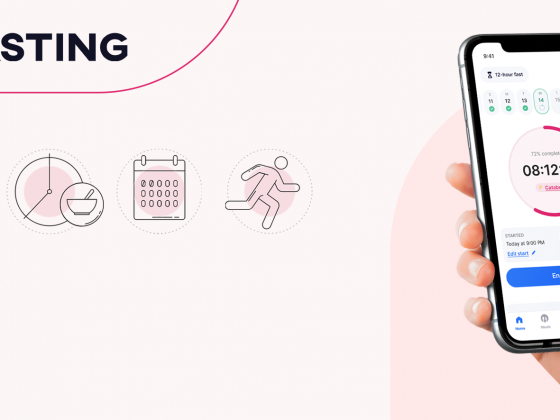Advancements in healthcare and social policies increasingly geared toward the welfare of citizens have made medical help accessible now more than ever. Whether you are experiencing a toothache and need a dentist, or require consultation with an Ear, Nose, and Throat (ENT) specialist for your recent ear pain, access to healthcare is just around the corner for your needs.
This article serves as a guide for you to reduce your confusion on exactly how often you should be scheduling your visits with the different types of doctors in your care team. We have compiled a list of the most frequently visited doctors as well as when and why you should visit them for your health checks. Though, in our current situation in the pandemic, it’s best to only visit doctors with maximum barrier protection from the virus.
1. Dentists
Dental hygiene is perhaps one of the most overlooked among many individuals and requires the most attention daily to maintain the general health of your teeth and gums.
You should aim to visit your dentists at least once every six months for regular scaling and polishing. Your dentist will also be better able to detect any hidden or hard-to-reach spots which may have cavities or require fillings to be done with frequent visits.
Regular visits to your dentist also ensure that you do not have to fork out thousands of dollars for potential surgeries such as root canals. This is because these procedures are usually only necessary without proper dental care over a prolonged period of time.
2. OB/GYN
For ladies, visiting your Obstetrician/Gynecologist (OB/GYN) is extremely important, especially past the age of 21.
Your OB/GYN has gone through years of specialist training and has attained a complete and holistic understanding of women’s reproductive health, as such you do not have to worry about being misunderstood when sharing sensitive information.
Regardless of whether you are sexually active, you should aim to visit your OB/GYN at least once a year. During these visits, they will be able to conduct wellness checks such as screening for cervical cancer along with breast and pelvic exams.
For women who are pregnant, your OB/GYN will be your primary source of care during your pregnancy, so be sure to choose an OB/GYN that you can completely trust and feel cared for.
3. Dermatologists
For your hair, skin, or nail issues, schedule a visit with a dermatologist to gain accurate and tailored consultations for your condition.
One of the most common skin conditions, acne, is routinely treated by dermatologists and you should aim to visit them right away if you suspect that your acne or other conditions are getting worse with time.
A dermatologist will also be better equipped to detect any precancerous symptoms appearing as lesions on your body, maintaining your general health along the way. We recommend scheduling routine check-ups at least once a year to ensure that your skin is smooth, shiny, and healthy.
For individuals who currently have or have had skin cancer, we recommend visiting your dermatologist at least once every six months to ensure that there are no recurring symptoms of cancer appearing and that your skin is in good condition.
4. Urologists
For biological males, it is vital to schedule routine visits with a urologist to ensure the proper functionality and health of your reproductive system.
Research shows that 13% of men around the world are at risk of getting prostate cancer. While the prognosis for prostate cancer is good, it is essential to detect it early to increase the chances of a complete cure and recovery.
Although prostate cancer is less common in females, you may also wish to get a checkup from a urologist if you are a biological female experiencing symptoms related to your reproductive health.
It is most commonly advised to visit a urologist at least once a year after age 40, as that is when the risk of getting urinary issues or prostate cancer starts to increase. Aside from these issues, urologists will also be able to help with sexual health issues such as erectile dysfunction and performing vasectomies, as well as bladder issues such as a urinary tract infection (UTI).
5. Cardiologist
The heart is one of the most essential organs in our human body, along with being one of the most sensitive organs that if damaged requires intense monitoring and care from dedicated specialists.
This is where cardiologists come in, many of whom possess decades of experience focussing on issues related to the heart. Cardiologists can provide care for patients of all ages and sexes.
Even if you do not suspect yourself of having a heart condition, it can be safe to visit a cardiologist once every two to three years to ensure that everything is in order. Be sure to schedule more regular visits — once or twice a year — if you have a heart condition or have a family history of one.
Cardiologists will be able to provide you with a comprehensive assessment of your heart health by conducting tests such as EKGs, stress tests, and ultrasounds. These tests will allow your cardiologist to ensure that your heart is healthy, and if not, to plan out the best course of treatment for your condition.
Conclusion
In most countries where healthcare is readily accessible, and often subsidized for local citizens, there is no excuse for neglecting your health by not scheduling routine check-ups with specialists to ensure that your mental and physical health is in great shape. That way, you will be able to enjoy life healthily to the fullest and reduce the worries of your loved ones as well.
Aside from reducing your healthcare costs with lesser unnecessary visits, you will also be able to save on long-term healthcare costs by ensuring that potential diseases are detected and cured well ahead of time.
As a general rule of thumb, be sure to visit most specialists at least once every one to two years, or more if you have a pre-existing condition that requires more consultation and care from a specialist.
The specialists listed in this article are some of the most common ones. Still, there are many other essential specialists such as neurologists and endocrinologists who are well-trained in helping to care for your specific condition.
If you are unsure of which specialist to schedule a visit with, it can be helpful to gain advice from your primary family physician, who may not even recommend a visit with one depending on the severity of your condition.
We hope this article helps you to stay safe and healthy for many years to come!



















